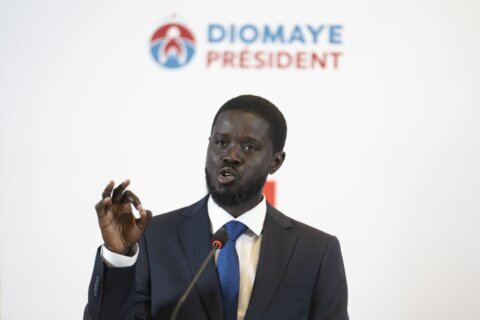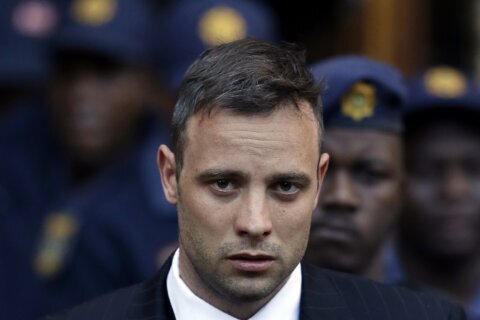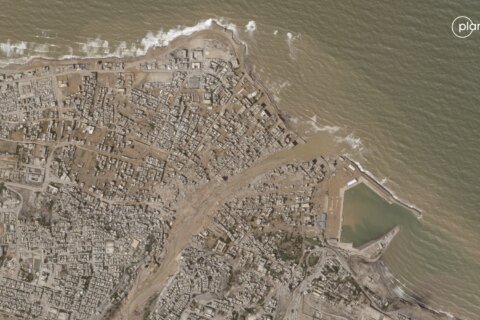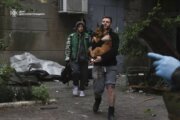OUAGADOUGOU, Burkina Faso (AP) — Burkina Faso’s slow and insufficient humanitarian response to the country’s escalating attacks is forcing people to choose between violence or hunger, the Norwegian Refugee Council warned on Monday.
Surging violence linked to al-Qaida and the Islamic State in the war-weakened West African nation has forced more than 275,000 people from their homes since April — double those displaced in the previous seven months, according to government statistics. Yet a lack of government capacity and a critical gap in funding is preventing aid groups from responding in time and putting civilians at greater risk, said the agency.
“It’s unacceptable to see that families who have endured horrific violence and hunger are now being left behind because of the failure of humanitarian organizations and authorities to respond effectively together,” Manenji Mangundu, director of the Norwegian Refugee Council in Burkina Faso told the Associated Press.
The government is struggling to register the increasing number of displaced people yet has been unwilling to let humanitarians step in, resulting in newly displaced families waiting weeks to receive food or shelter, and tempting many to return home despite the threat of attacks, he said.
Jihadi violence has wracked the once peaceful nation for five years, displacing more than 1.4 million people and forcing nearly 3 million into severe hunger. The violence shows no signs of abating. Recent months have seen some of the deadliest fighting since the conflict began. At least 160 people were killed in June during an attack in Solhan village in the Sahel region, according to residents and 341 people were killed in August, more than three times the number killed the same time last year, according to the Armed Conflict Location & Event Data Project.
Since the start of the crisis, humanitarian groups say the government has wanted to maintain control over the response, reluctant to let aid groups help with the registration process which is slowing things down. The government has also made it harder for the media to report on the situation, by banning journalists from visiting displacement sites.
“The government appears to be prioritizing its wish to lead the response over the well-being of its population,” said Alexandra Lamarche, senior advocate for West and Central Africa for Refugees International. “The government’s efforts to control the response, and restrict and censor the media, does not change the troubling fact that the country’s humanitarian crisis continues to worsen,” she said.
The government did not respond to requests by AP for comment. The minister of humanitarian action, Helene Marie Laurence Ilboudo Marchal, has previously said the media ban was implemented to protect the dignity of displaced people.
While the government grapples with the humanitarian crisis, the country’s ill-equipped and undertrained army is struggling to stem attacks and say the jihadis are gaining ground.
A high ranking officer told the AP during a visit to Dori town in July that fighting jihadists has been a real challenge, as they are now everywhere. The AP is not using his name because he was not authorized to speak to the media. Even though they’re not winning militarily, they’re winning by economically destroying the country, he said.
The deteriorating security situation has sparked widespread unrest. Protests in July demanding the government take stronger action, prompted President Roch Marc Christian Kabore to fire his ministers of defense and security and appoint himself minister of defense. Last month the defense ministry announced it would overhaul its counterterrorism strategy, including implementing military changes and focus on humanitarian assistance, however it did not provide details.
Meanwhile, displaced civilians say they’re struggling to survive. Abderamane Tamboura fled Solhan during the attack in June, but months later said he hasn’t received any support.
“We don’t have food, and no aid organization or government has helped us so far,” the 30-year-old father of two told the AP by phone from the northern province of Yagha. “(The) humanitarian situation is getting worse, we are starving here,” he said.
Copyright © 2024 The Associated Press. All rights reserved. This material may not be published, broadcast, written or redistributed.







